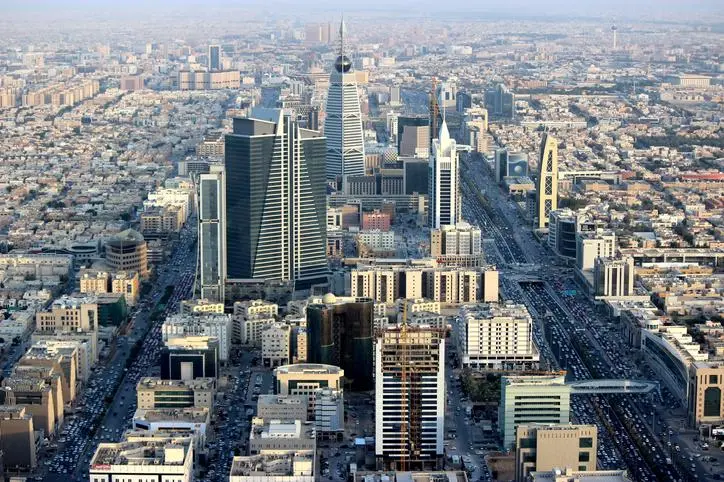PHOTO
The global developments related to coronavirus (COVID-19) present downside risks to non-oil growth within Saudi Arabia, Jadwa Investment has said in a new report.
The investment bank had initially forecast 2020 as a stand-out year for the kingdom’s non-oil economy and expected the non-oil private sector to hit a growth rate of 3.8 percent, the first time since 2014.
“Whilst we still expect non-oil growth to be reasonable, at 1.6 percent, and non-oil private sector growth at 1.8 percent, developments around COVID-19 will temporarily derail the momentum in year-on-year non-oil growth,” the report said.
On the fiscal side, the oil producer’s budget deficit is now expected to widen to 229 billion riyals, or 7.8 percent of the GDP, as the virus pandemic is expected to impact global oil demand and prices. The finance ministry had targeted a budget deficit of 187 billion riyals late last year.
“According to our calculations, with Brent oil expected to average around $44 per barrel in 2020 and Saudi crude oil production at around 11.3 million barrels per day, we see government oil revenue being slightly lower than that anticipated by the [Ministry of Finance], at 471 billion riyals.” The government’s GDP data shows that the economy grew by 0.3 percent in 2019, but Jadwa expects this to jump this year to 6.3 percent thanks to contributions from both the oil and non-oil sector.
“We expect a sizable recovery in oil-sector GDP, not only because of year-on-year rises in crude oil production, but also due to uplift from the start-up of the Fadhili gas complex and Jazan refinery.” Jadwa said it expects the oil sector, which accounted for 42 percent of GDP in real terms at the end of 2019, to grow by 13 percent during the year.
However, it expects to see lower growth than anticipated in the transport, storage and communication, wholesale/retail trade, restaurants/hotels and manufacturing sectors.
Jadwa foresees progress under various Vision Realization Programs (VRPs), many of which have 2020 commitments to directly contribute to growth in a number of sectors during the year.
“For example, under the Public Investment Fund program, we expect growth in the construction sector as a result of progress on mega-projects, whilst the combination of the Financial Sector Development Program and Housing VRP will help push growth in the housing and mortgage finance sector.” At the moment, the range of potential effects of COVID-19 on the kingdom’s economy remains highly uncertain, the report said.
“Currently, the Saudi authorities have set up various precautionary measures to prevent further transmission, but ultimately, this is only one side of the coin. The other side of the coin is that a prolonged and sustained outbreak of the virus globally could have a broad and lasting disruption to global trade and manufacturing output in 2020, which will inevitably act as a further drag on the local economy.” The research report comes as Saudi Arabia suspended almost all of its private sector, except health and food services, for two weeks. On Monday, the kingdom began imposing a curfew to control the spread of the contagion. The health ministry said there were 119 new coronavirus cases as of Sunday, raising the total number to 511.
The Saudi central bank has unveiled a 50-billion-riyal package to support business, which included 30 billion riyals for banks and financing companies that are deferring loans to small and medium-size enterprises.
On Monday, S&P Global Platts Analytics lowered its 2020 forecast for Brent benchmark crude to $30 a barrel, down by $10 from previous estimates of $40. The ratings agency has estimated that the growing number of lockdowns could result in an oil demand decline of as much as 14 million barrels per day during April and May.
(Reporting by Brinda Darasha; Editing by Seban Scaria)
( seban.scaria@refinitiv.com )
#COVID19 #SAUDI #ECONOMY #JADWA
Disclaimer: This article is provided for informational purposes only. The content does not provide tax, legal or investment advice or opinion regarding the suitability, value or profitability of any particular security, portfolio or investment strategy. Read our full disclaimer policy here.
© ZAWYA 2020





















